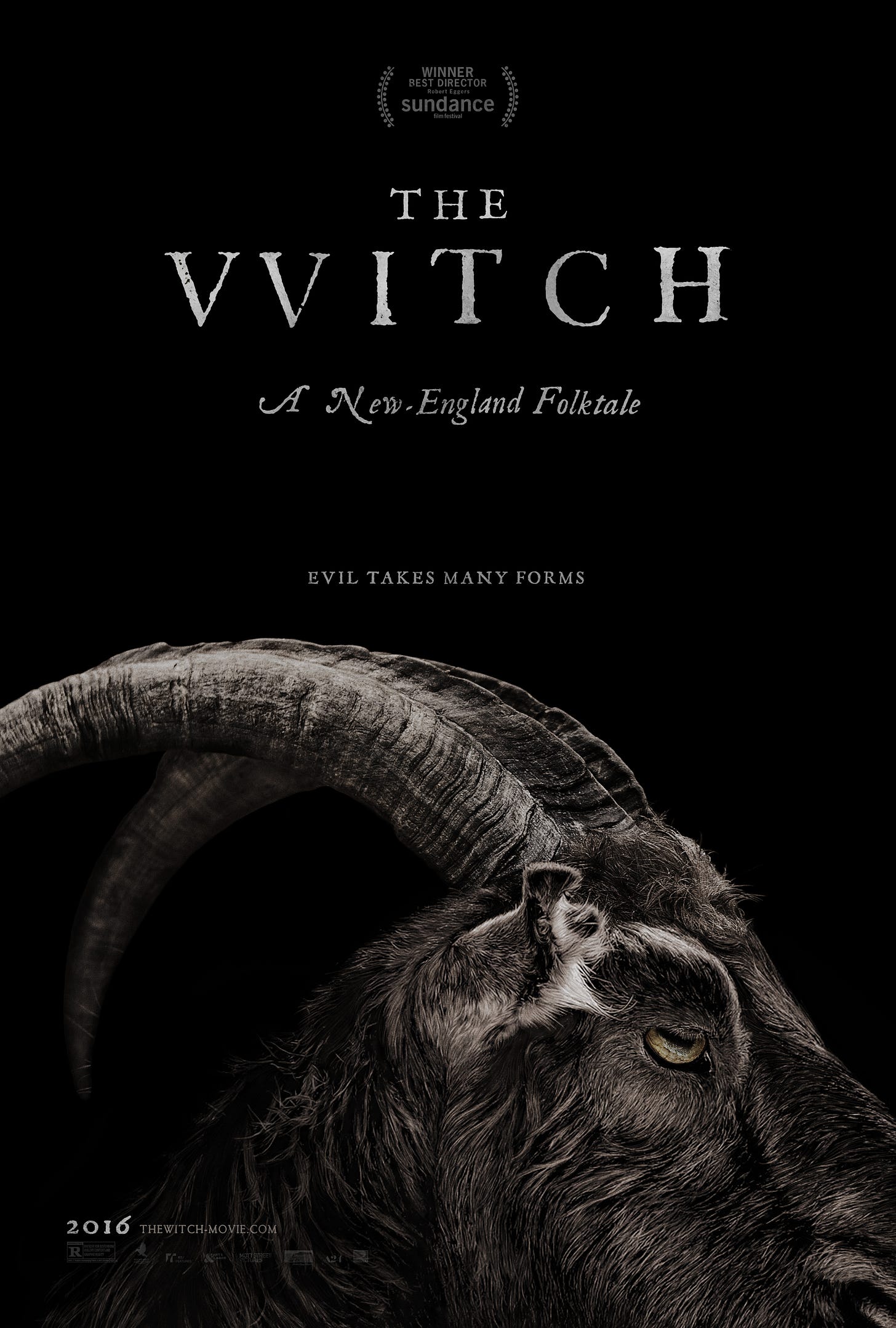I cannot believe that it’s been nearly ten years since Robert Egger’s The Witch came out. Its influence on me and this little newsletter cannot be overstated. While it’s not my favorite movie of all time (though it’s up there!), it is one of those films where I can easily point to and say “there was my life before this movie, and then everything that came after.”
We need to go back. I saw this film not long after it came out in 2015. At the time, I was still recovering from a traumatizing first year of teaching and had found solace in another abusive employer (though I didn’t know how bad it would get). I was still trying to come to terms with what the 2008 financial crisis had made of my life and the huge wrench that had thrown in all my plans. My grandmother had also died the year before.
To say I was swimming in all kinds of grief would be an understatement. I was mourning the multitudes of dead that had piled up in my life: my grandmother, my writing career, jobs started, jobs lost, the life in Hollywood that had been yanked out from under me. I’d stopped watching movie trailers, stopped caring what was coming out, stopped following what my friends were working on.
I was in a sea of gray. Adrift and bereft, clinging to the only stability I had in my life: my partner. One of our shared loves has always been movies, and I’d outsourced our watchlist to him. He knew my tastes. He knew my inclinations. He also knew no more fucking horror movies.
“I want to watch a horror movie, but I think you’re going to love it.”
I’d given up on horror. I couldn’t keep my nervous system regulated enough to watch those kinds of movies anymore. I didn’t like how I felt while watching them, or how people mocked my total suspense of disbelief. I’d stopped reading the genre in high school when it became clear that serious people didn’t read horror.
No more fucking horror movies.
He promised we could turn it off if I wasn’t in to it.
Watching The Witch was like stepping into Oz after being away for a very long time. Maybe more Return to Oz than Wizard of Oz, but still. It felt like being seen, and like having all of my preferences and tastes presented to me on a silver platter. Preferences and tastes that I hadn’t even known were inside me. Not for a long time.
The Witch was my official re-introduction to folk horror. It marked the moment where I remembered what I loved about watching horror movies. It reminded me of what I had once delighted and reveled in before it had been shamed out of me.
Wouldst thou like the taste of butter? A pretty dress? Wouldst thou like to live deliciously?
When I was a teenager, I once wrote a poem about wearing my jewelry like armor. I have always treated the things which I adorn myself as talismans. The moment I saw a bangle stamped with Live Deliciously, I knew I had to have it.
Because I would like to live deliciously. I would like the taste of butter. I might even like a pretty dress. Were I Thomasin standing before Black Phillip, I too would have signed his book.
This is a movie about witches and betrayal and losing your way. But it’s also about claiming power where one can, and making the most of a situation. It’s sometimes discussed at what benign, small things Black Phillip offers to Thomasin. But I would argue these are no small things to her.
She lives in Puritan New England and has been taken away from her community by her obstinate father. She has been forced to deny her desires for a long time, and even simple pleasures are things denied to her by religious extremism. They’re on the edge of starvation. Butter wouldn’t have been something to just have. It required work, and a lot of it. And that’s assuming you have the milk and time to produce it. They have goats, but no cow, so there wouldn’t have been the abundance of milk, anyway.
Pretty dresses would have been another luxury denied to her. She owns one plain dress. A dress that is ruined during The Happening link of its Folk Horror Chain. To have another dress—let alone a pretty one—is something she otherwise wouldn’t have.
And lastly, that offer to live deliciously. Puritanism was about denying worldly pleasures. Hard work was what one did in order to redeem the inherent sins of being human. There was no need for worldly pleasures, for they would be your reward in heaven (assuming you were among God’s chosen to be saved).
Black Phillip is offering Thomasin a whole new world, one where she doesn’t need to work herself to the bone or live in perfect obedience. One where she can be powerful in her own right, and enjoy the world as it is. He tempts her with what her family and culture believe to be grave sins: slovenliness and fickle wants.
But is the choice hers to make?
Thomasin has three options: She can die alone in the wilderness; she can go back to her previous community, where they will almost certainly accuse her of witchcraft; or she can make a pact with the devil to become an actual witch. To me, the choice seems obvious.
To Thomasin, too.






I wrote a paper about this film! It's a great one.